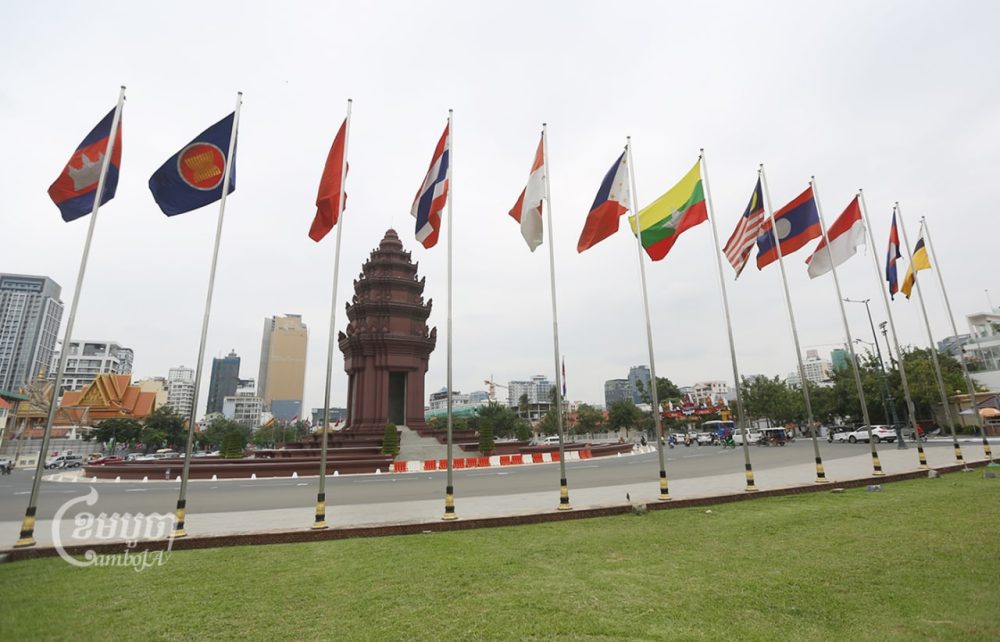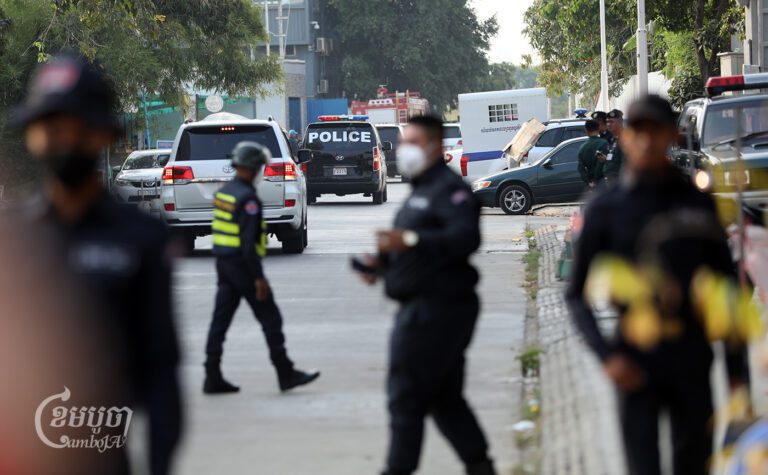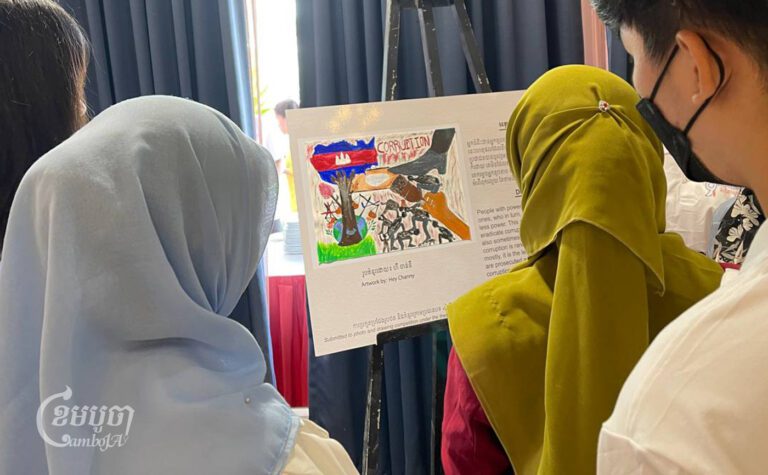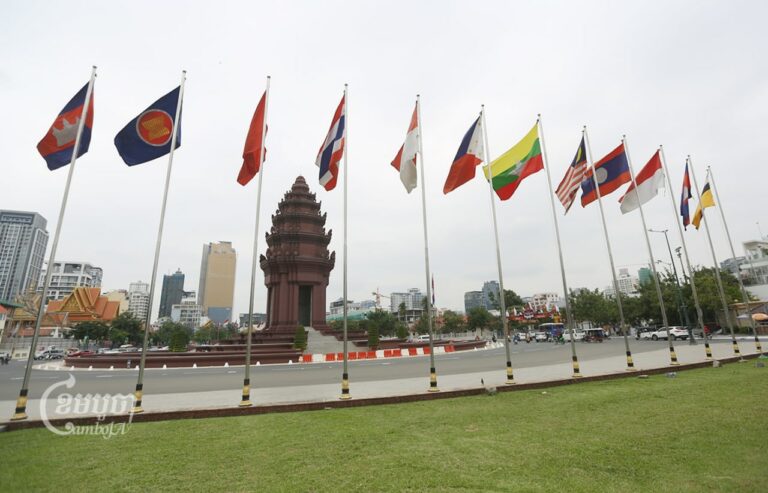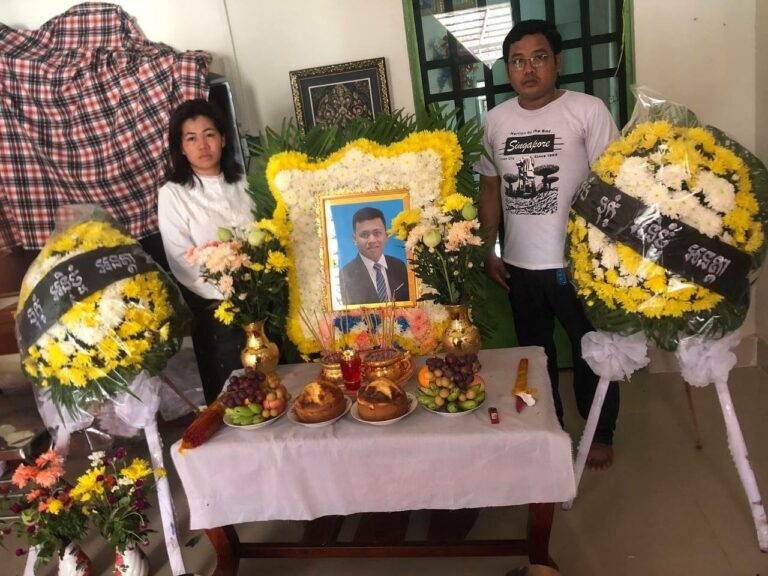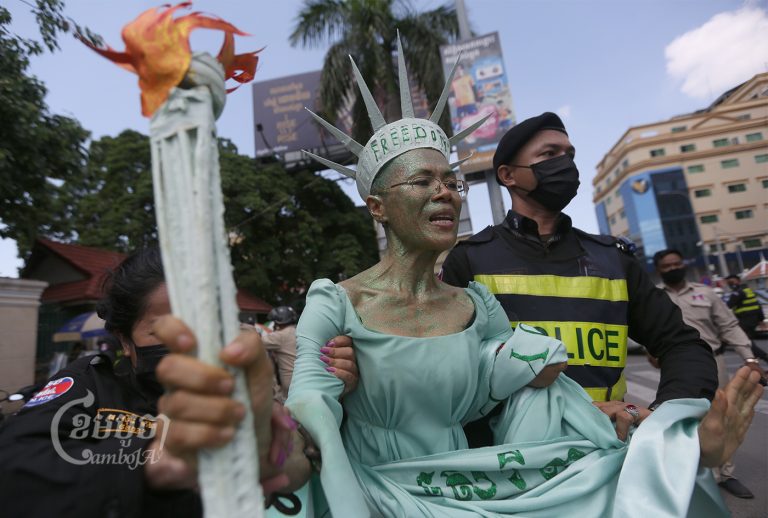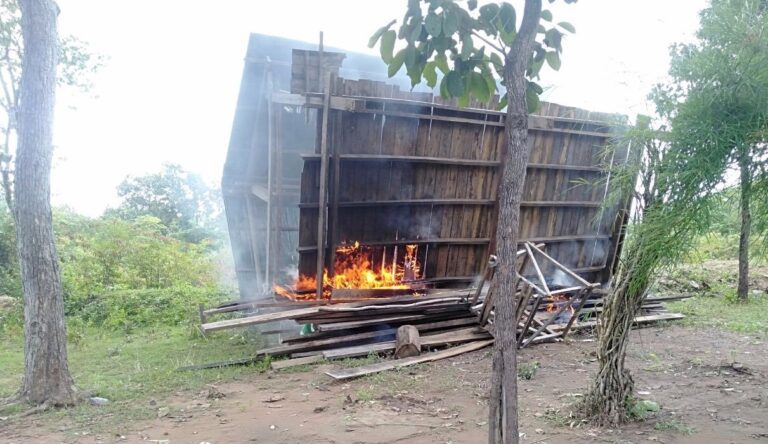Ahead of the Asean summit in Phnom Penh this week, observers say leaders of the bloc’s member states will mostly debate regional security issues, especially the conflict in Myanmar. The country’s military leader was not invited.
But the heads of the other nine member states of the Association of Southeast Asian Nations and other world leaders will visit Phnom Penh for the summit from Thursday to Sunday, as Cambodia concludes its yearlong term as Asean chair before passing the duty to Indonesia.
When Cambodia last chaired Asean in 2012, clashing positions on the South China Sea resulted in no joint statement being issued at the conclusion of that year’s foreign ministers’ meeting for the first time ever.
At this year’s Asean summit, while the Philippines is expected to be vocal about its South China Sea position, some say Vietnam will not rock the boat, despite it also having conflicting claims with China. The bloc is expected to maintain an even keel on the matter in its concluding joint statement.
But the Myanmar conflict, and how Asean should respond to it, stands to be the most contentious issue during the summit, regional experts told CamboJA.
“The situation in Myanmar will be particularly contentious because Asean’s Five Point Consensus has failed to get traction,” said Carl Thayer, a Southeast Asia analyst and emeritus professor at the University of New South Wales.
Some countries, including Indonesia and the U.S., were likely to call for stronger measures against Myanmar’s military junta, which overthrew the country’s elected civilian government in a coup in February 2021. Cambodia, as well as Russia and China, meanwhile, were likely to oppose such measures, Thayer said.
Asean’s peace plan, agreed to in April 2021 by nine Asean leaders and Myanmar’s military leader Min Aung Hlaing, included five points: an immediate end to violence in the country; dialogue among all parties; the appointment of a special envoy to facilitate dialogue; humanitarian assistance provided by Asean; and the special envoy’s visit to Myanmar to meet with all parties.
However, a year later, Human Rights Watch noted that the junta had defied each point “while overseeing a brutal nationwide crackdown aimed at suppressing the millions of people opposed to military rule.”
Asean’s Five Point Consensus “has gone absolutely nowhere,” said Phil Robertson, HRW’s deputy Asia director.
“The situation in Myanmar has become an unmitigated disaster and Asean, which has insisted on its centrality in solving the problems there, has clearly slammed into a wall with no progress of any sort being made to resolve the situation,” he said.
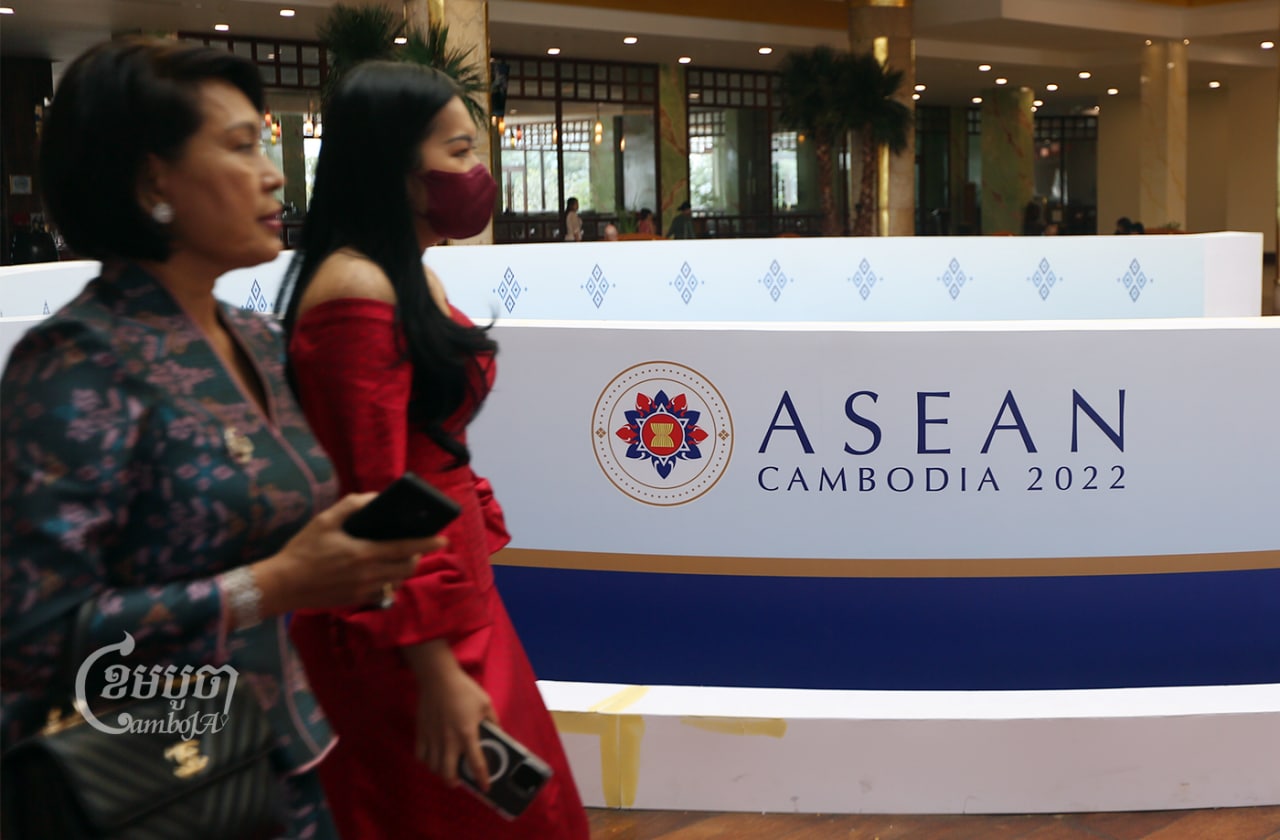
Asean’s Lack of Consensus on Myanmar
Since Myanmar’s military overthrew the elected government of Aung San Suu Kyi, more than 2,400 people have been killed by the junta and nearly 13,000 people associated with the pro-democracy movement are still detained, according to the human rights organization Assistance Association for Political Prisoners.
Earlier this month, Cambodia, as Asean chair, said the bloc was “gravely concerned over the recent escalation of violence in Myanmar,” and “deeply saddened by the growing casualties” and suffering of the country’s people.
Asean urged an “immediate cessation of violence,” and for “all parties concerned, in particular one with significant power on the ground” — a reference to the military junta, without naming it — to take clear actions toward peace talks and national reconciliation for the sake of regional security, according to a statement.
The U.S. has already imposed sanctions on dozens of Myanmar military leaders, business people and companies tied to the military, while Russia and China have provided military and diplomatic support to the junta.
Asean has attempted to isolate the government of junta leader Min Aung Hlaing, with the bloc criticizing the military’s executions of opposition activists and failure to uphold the principles of the Five Point Consensus. Asean has also barred Myanmar military officials from attending meetings of bloc states’ leaders since last year.
But some observers say Prime Minister Hun Sen botched Cambodia’s chairmanship, especially when he met with Min Aung Hlaing in Myanmar in January, sparking backlash from the Myanmar public and human rights advocates who accused Hun Sen of giving legitimacy to the Myanmar military regime.
Robertson of HRW said Hun Sen “alienated other Asean leaders from the get-go by rushing off to Myanmar” without adequately consulting other Asean states — and never recovered from his misstep.
At the time, Malaysia’s foreign minister criticized Hun Sen for taking unilateral action, saying the premier’s trip achieved nothing, although Min Aung Hlaing pledged to extend a cease-fire with ethnic armed groups.
Critics also argue Hun Sen overreached by appointing Foreign Minister Prak Sokhonn as Asean special envoy, since Sokhonn visited Myanmar twice with “nothing to show for his diplomatic intervention,” Thayer said.
The military never allowed Sokhonn to meet with Aung San Suu Kyi, who has been imprisoned since the coup.
Others argue not much more could have been done, and give Hun Sen credit for engaging with the junta, appointing an envoy and “keeping Myanmar inside the Asean tent” by suspending the country’s participation in Asean meetings, but not formally expelling it from the bloc, Thayer said.
Joshua Kurlantzick, senior Southeast Asia fellow at the Council on Foreign Relations, said Asean has “achieved nothing on Myanmar,” but he acknowledged that since the junta isn’t interested in dialogue, many options for engagement have been closed off.
He doubted Asean as a whole would play a productive role in Myanmar but said individual states may, after Cambodia had been “pretty much a failure” as Asean chair.
“Hun Sen basically gave up early on in terms of doing anything substantial on Myanmar, a stance that is splitting Asean and leading countries like Indonesia to possibly go their own way on Myanmar, making Asean look bad,” Kurlantzick said.
What Should Asean Do?
Thayer said Asean has a number of options to address the conflict in Myanmar: naming and shaming the military junta, trying to find a non-political leader to represent Myanmar at Asean meetings, contacting the opposition National Unity Government and providing it with humanitarian assistance, filing claims of crimes against humanity against the junta before the International Criminal Court, and pressing the U.N. Security Council to establish a global arms embargo against Myanmar.
Finally, he said the bloc could take steps to expel Myanmar from Asean and isolate it internationally.
“The bottom line, however, is that none of these measures is likely to have a major impact on the ongoing conflict in Myanmar,” Thayer said.
China and Russia would likely use their veto power to block such measures at the Security Council, and Asean states are unlikely to reach consensus on harsher measures against the junta, he said.
Still, for HRW’s Robertson, it’s time for Asean to “get tough” with Myanmar by establishing time bound rights benchmarks, with clear penalties, to release political prisoners, cease attacks on civilians, and move toward dissolving the junta and allowing for civilian democratic rule.
South China Sea Status Quo
The South China Sea is often a contentious issue among Asean nations, but, according to Thayer, the bloc has a “well-worn template” for its South China Sea policy that “covers all the bases on issues and concerns by claimant states,” and it’s “highly unlikely” that Asean leaders will change longstanding views this week.
While China claims sovereignty over the sea, and its massive oil and natural gas reserves, five Asean states, Brunei, Indonesia, Malaysia, the Philippines and Vietnam, as well as Taiwan, have competing claims. The U.S. has maintained these countries should have freedom of navigation in the sea. In 2016, the Permanent Court of Arbitration at The Hague ruled mostly in favor of the Philippines in a claim it brought against China, but China has refused to recognize the decision.
Last year’s joint Asean statement notes that “concerns were expressed by some Asean Member States on…serious incidents in the area [of the South China Sea]…which have eroded trust and confidence, increased tensions, and may undermine peace, security, and stability in the region.”
Asean then calls for “self-restraint,” peaceful settlement of disputes under international law and the need to “avoid actions that may further complicate the situation.”
After Vietnamese communist party chief Nguyen Phu Trong’s recent visit to Beijing, which resulted in a rosy outlook on bilateral relations, Thayer said Vietnam is unlikely to raise contentious South China Seas issues at the summit, despite the nations’ conflicting claims.
The Philippines, however, has been vocal about Chinese actions affecting Philippines sovereignty, and President Ferdinand Marcos Jr. is likely to raise his concerns at the summit — although they are unlikely to make it into the Asean joint statement at the summit’s conclusion, Thayer said.
Political analyst Meas Nee cautioned that Cambodia needed to be careful to avoid a repeat of 2012, when it faced criticism over its failure as Asean chair to find consensus on the South China Sea.
“At that time, Cambodia was seemingly showing its clear tendency toward China as it blocked a joint statement on the South China Sea, leading to heavy criticism from the international community, especially among Asean members who have disputes,” Nee said.
However, during the Asean foreign ministers’ meeting in August, Cambodia had done well in balancing its stance between world powers, he said.
But Sophal Ear, a political commentator and associate professor at Arizona State University, said it was clear enough which side Cambodia leaned toward in the U.S.-China rivalry.
“Asean is both observer, but also participant [in the U.S.-China competition], tipping the balance to one side or the other, bandwagoning or, in Cambodia’s case, becoming a kind of extension of China,” he said.
While China continued to maintain that the South China Sea was within its territory, Ear said “the only thing standing in its way of forcing this position down the throats of Asean claimant states like Vietnam and the Philippines, among others, is the U.S. and Japan.”
“Smooth and Successful”
While the conflicts in Myanmar and Ukraine, and U.S.-China tensions threatened to dominate summit discussions, economist Jayant Menon said he hoped leaders would make progress on the Asean Economic Community following pandemic delays that have pushed back the realization of a single integrated market in Southeast Asia.
“Initiatives to ensure that the 2025 timeline for the AEC is not missed again will be critical as we get closer to this second deadline,” said Menon, a senior fellow at the ISEAS-Yusof Ishak Institute in Singapore.
This year’s summit may also set the stage for Timor-Leste to become the 11th Asean member next year, since concerns over its preparedness to join have been largely addressed, he added.
HRW’s Robertson said he expected Asean states concerned about their nationals being trafficked to Cambodia to raise the issue of cyber-scam operations and related human trafficking, and to call for Cambodia and Laos to address these transnational crimes.
“Asean should come out with a clear statement calling for action to shut down these centers, investigate and punish the perpetrators of the trafficking abuses and fraud, and ensure that all the victims are freed and enabled to go home,” Robertson said.
If Asean fails to address these issues, he said the bloc’s dialogue partners, including the U.S., should demand accountability.
Foreign Affairs Ministry spokesperson Chum Sounry said as the summit’s host, the ministry and other officials have been working to ensure a “smooth and successful process.”
While Cambodia expected “hot debates on a number of regional and international issues,” Sounry said the government would “push for more cooperation projects on issues that we can agree on, and more constructive dialogue on issues that we have different views and positions in order to avoid hostile confrontation and miscalculation.”
Asked about Cambodia’s stance on contested issues, the spokesperson said “reporters will know the Cambodian position on those issues during the summits, not before.”
According to Robertson, Cambodia would “be on the defensive across the board” during the summit, after a “lackluster” chairmanship during which various regional challenges were not effectively addressed.
“Hun Sen has been more interested in the pomp and circumstance of being Asean leader at the center of international attention than making any serious progress on substantive issues and pressing problems in the bloc,” he said.
“But given how badly things went 10 years ago when Cambodia chaired the only Asean summit to ever conclude without reaching agreement on a summit statement, the government has a pretty low bar to meet for the summit to be called a ‘success.’” (Additional reporting by Sorn Sarath)


